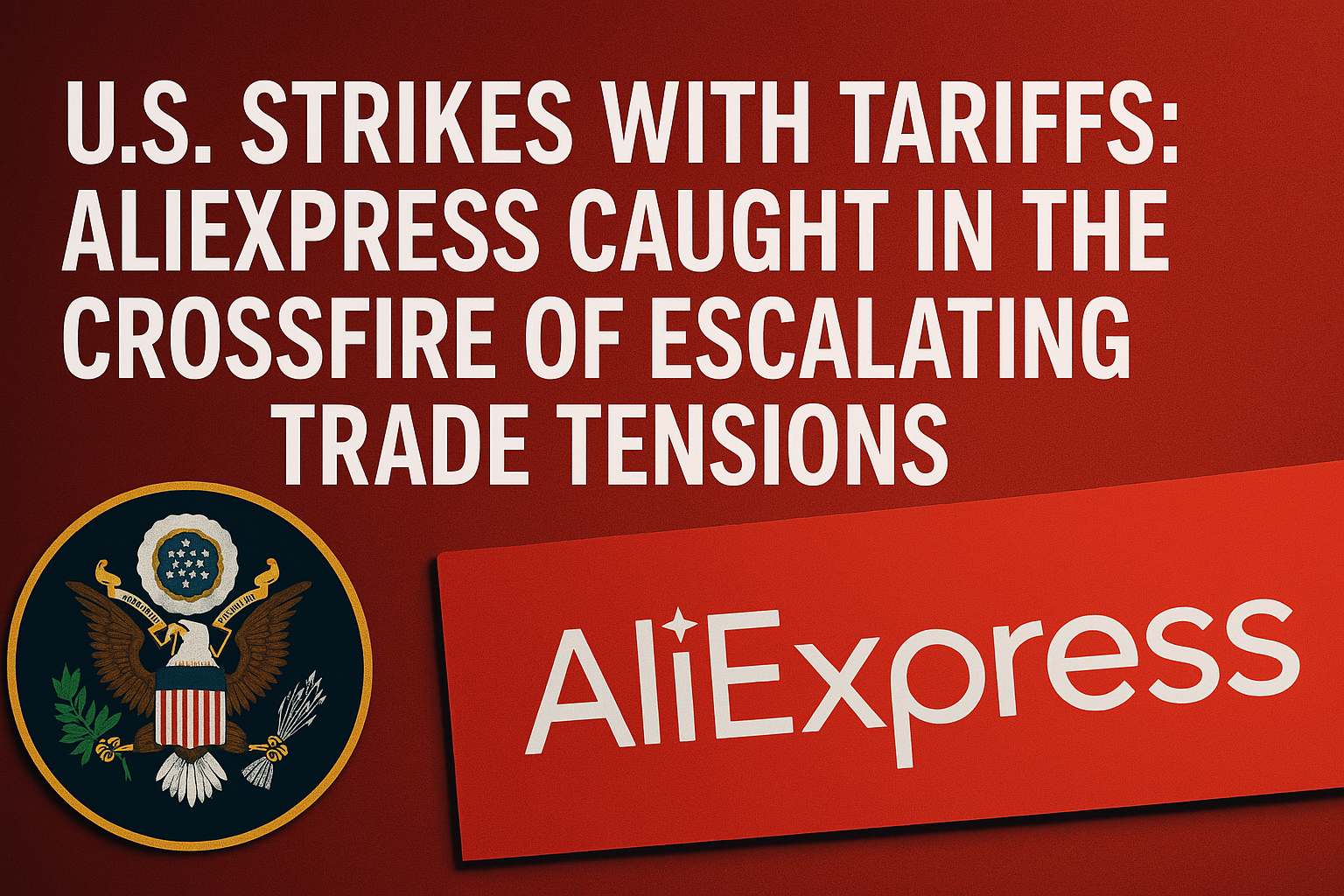A sweeping new round of U.S. tariffs aimed at low-cost imports is poised to shake up the online shopping habits of millions of Americans, particularly those who rely on platforms like AliExpress.
President Donald Trump announced a dramatic increase in levies on Chinese goods from April 9, 2025, with a specific executive order targeting small-value shipments that have long enjoyed tariff-free entry.
Starting Wednesday, packages valued under $800 — commonly used by American consumers to buy inexpensive items from AliExpress — will now face a staggering 90% tariff, up from the previously planned 30%.
These orders had been shielded from duties under the “de minimis” exemption, but that protection has now been eliminated.
The move is part of a broader escalation in Trump’s tariff strategy, as tensions between Washington and Beijing continue to mount.
Initially, a 34% hike was expected this week. However, after China doubled down on retaliatory tariffs of its own, Trump responded by stacking an additional 50%, pushing total duties across many imports to as high as 104%.
Though the White House framed this as a stand for American workers, the impact on U.S. consumers may be immediate — especially those who regularly purchase from global e-commerce sites like AliExpress, Shein, and Temu, which have boomed in popularity due to their ultra-low prices and free shipping.
“This is about fairness,” said White House Press Secretary Karoline Leavitt. “Countries that mistreat American businesses and workers won’t get a free ride anymore.”
Markets didn’t share the same optimism. After a brief morning rally, Wall Street tumbled following Leavitt’s announcement.
The Dow closed down 320 points, with steeper declines seen in tech-heavy indices like the Nasdaq, which dropped more than 2%.
AliExpress, owned by Chinese tech giant Alibaba, has long benefited from the U.S. de minimis threshold, enabling millions of Americans to order goods like phone accessories, fashion items, gadgets, and home décor with minimal tax or import costs.
With this exemption effectively scrapped, shoppers can expect significant price increases, slower shipping, and possibly fewer items being offered for U.S. delivery.
Chinese officials condemned the latest tariffs, calling them “a mistake upon a mistake” and signaling more retaliatory measures are on the way.
Meanwhile, global markets — particularly in Asia — mirrored Wall Street’s drop, with Japan’s Nikkei, Hong Kong’s Hang Seng, and Australia’s ASX 200 all in the red.
As trade tensions flare, experts warn of a ripple effect that may push inflation higher and reduce consumer spending, especially among budget-conscious shoppers who have leaned heavily on platforms like AliExpress for affordable goods.
While President Trump signaled openness to making “tailor-made” deals with other nations, there was no mention of any concessions for online retailers or platforms that specialize in small-value exports.
For now, AliExpress customers are likely to bear the brunt of the tariff war, one cart at a time.
Crucial Points To Note:
- De minimis is active until May 2, 2025. Those ordering products from China with order values below $800 are safe until then
- Too much panic buying is happening. Unless you are buying a vital product that you can’t find in the US, it’s advisable to avoid the purchase. The backlogs to be witnessed will most likely get you hit with tariffs
- Since it’s past Wednesday 9th April 2025, anything above $800 will be subjected to 104% tariffs. For instance, an item going for $1000 in China will incur $1040 in tariffs. Upon reaching the US, it means the lowest amount you might get it for is $2040
